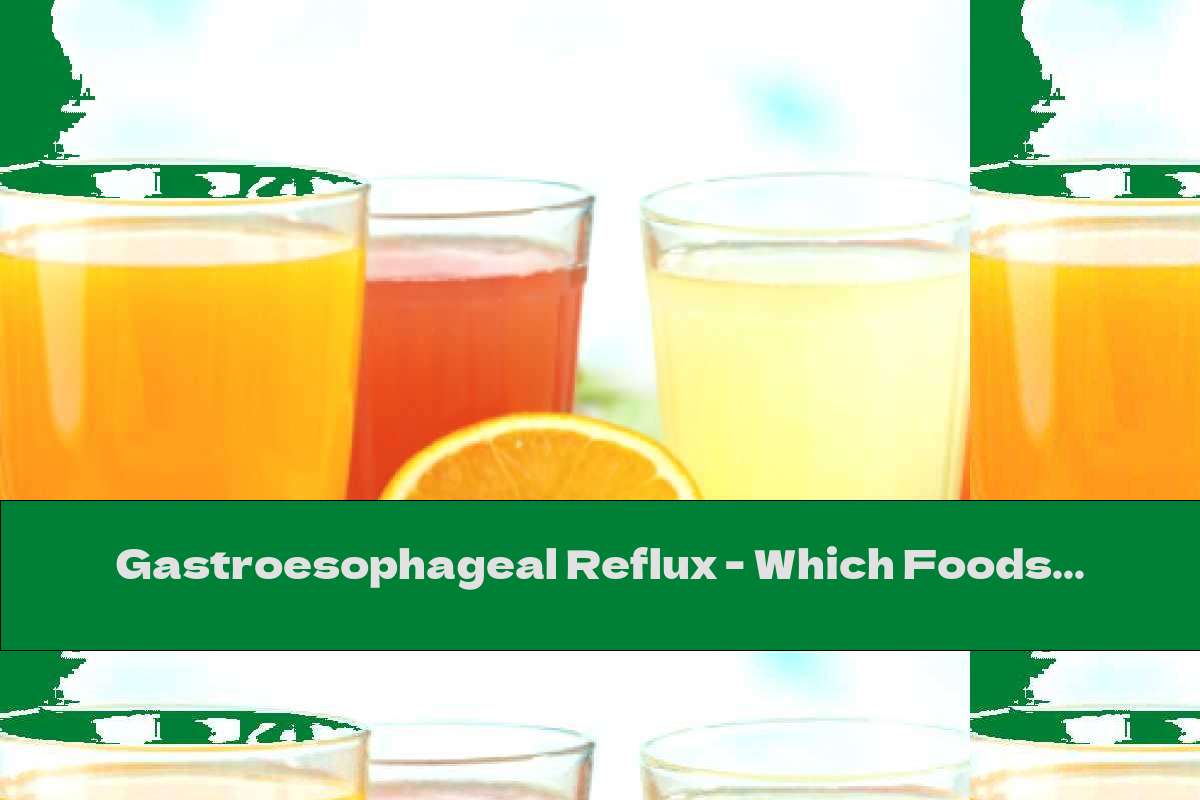Gastroesophageal Reflux - Which Foods Increase "acids"?
 Author: Dean Rouseberg
Time for reading: ~2
minutes
Last Updated:
August 08, 2022
Author: Dean Rouseberg
Time for reading: ~2
minutes
Last Updated:
August 08, 2022

In this article, learn more about Gastroesophageal Reflux - Which Foods Increase "acids"?. It is a mistake to take baking soda to reduce symptoms.
The esophagus can be defined as a kind of tube through which food passes from the oral cavity to the stomach . At both ends are esophageal sphincters (upper and lower), which are annular muscle valves that regulate the passage of food and prevent its return. Significance for the return of gastric contents (back to the esophagus) is given to the impaired function of the lower esophageal sphincter.
The main symptoms of reflux esophagitis are a burning sensation and irritation behind the sternum , which can grow into sensations of pain. They occur due to irritation of the esophageal mucosa by the acidity of gastric juice, which enters through the relaxed sphincter. Repeated episodes of recurrence of gastric contents can lead not only to inflammation of the esophageal mucosa, but also to permanent changes in its structure, which can be precancerous (precancerous).
The entry of gastric juice through the upper and lower respiratory tract is not excluded. This usually happens at night, lying down. This can lead to hoarseness, coughing, as well as bronchitis and pneumonia. In addition, when it enters the oral cavity, the high acidity causes the destruction of tooth enamel.
It is important for the diet to avoid foods that increase stomach acidity, as well as those that have a relaxing effect on the lower esophageal sphincter.
Foods rich in fat have been found to relax the lower esophageal sphincter. These are fried foods, fatty meats, as well as some full-fat products - milk, cream, mayonnaise and others. People with reflux esophagitis are advised to prepare their food more often by baking and cooking using a minimum amount of fat.
All spicy and hot spices, alcohol (especially when consumed on an empty stomach), onions, garlic, a large part of citrus fruits, as well as tomatoes are defined as foods leading to increased secretion of gastric juice .
Consumption of chocolate leads to both loosening of the esophageal sphincter and an increase in the acidity of gastric contents due to the presence of more fat in its composition, as well as theobromine, which increases the secretion of hydrochloric acid.
Carbonated drinks cause bloating and can cause belching, accompanied by the return of gastric contents to the esophagus and irritation of its lining. Often this type of belching is defined by patients as acidic, with a feeling of return of undigested food residues.
Coffee as well as drinks or foods containing mint can cause gastroesophageal reflux. It is important for each patient to judge individually for themselves which foods worsen their symptoms and which do not, in order to minimize unnecessary restrictions on the menu.
Tips for relieving the symptoms of reflux esophagitis
In addition to the choice of food, the size of the portions and the frequency of their intake are important. Frequent meals, in small portions, are recommended, thus avoiding overeating and, consequently, the possible return of gastric contents to the esophagus. In addition, about 15-20 minutes before each meal it is advisable to drink a glass of water.
Late evening meals before bedtime should be avoided , as in the supine position patients are more likely to complain of reflux. It is recommended not to eat for about three hours before bedtime, especially when lying down. Physical activity immediately after eating also leads to worsening of symptoms.
Baking soda is wrong , as the symptoms are initially relieved, but as a compensatory mechanism, there is an increased release of hydrochloric acid. As a consequence, the condition worsens. 3742
Related Articles
- Nutrition for Respiratory Health: Supporting Your Lungs with the Right Foods
- The Ultimate Guide to High Gluten Foods: Benefits, Sources, and Recipes
- The Ultimate Guide to High Gluten Foods: Effects, Benefits, and Recipes
- Nutrition and Libido: Enhance Your Sex Drive with the Right Foods
- Understanding E+631 in Nutrition: Health Implications, Common Foods, and Alternatives